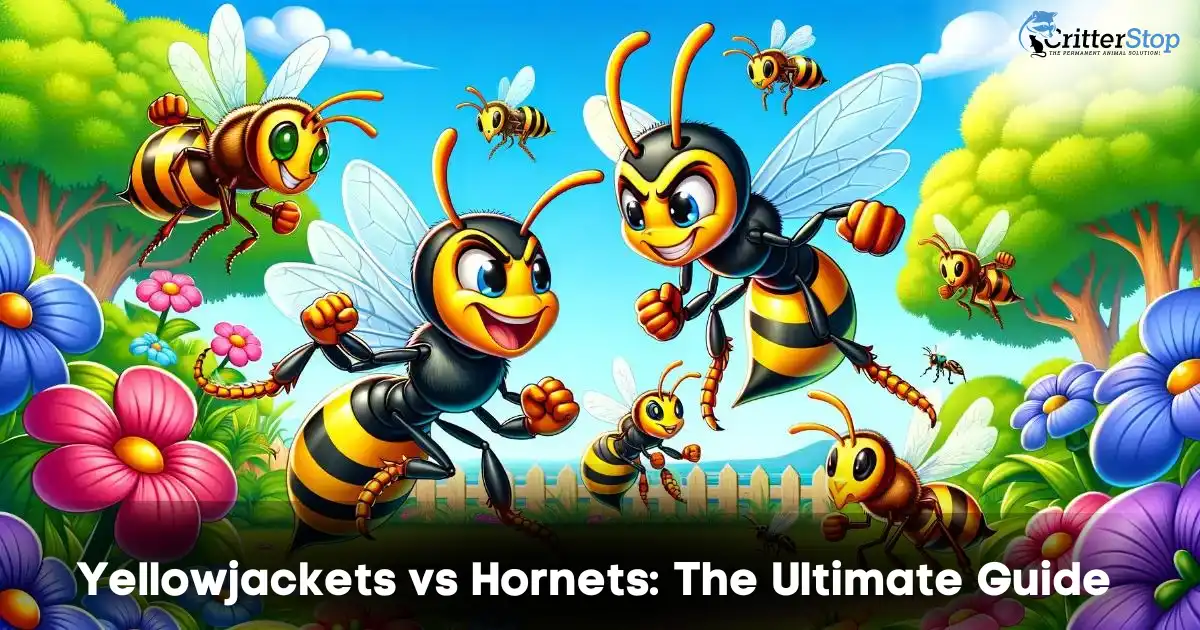
When it comes to stinging insects, the terms yellowjackets and hornets are often used interchangeably. However, these two types of wasps have distinct differences that are crucial to understand, especially when dealing with an infestation. This comprehensive guide delves into the characteristics, behaviors, and threats posed by yellowjackets and hornets, helping you identify and manage these insects effectively.
If you’re facing a serious wasp problem, Critter Stop is your best option for professional, humane wildlife removal. Visit their website to learn more about their high-quality services and outstanding customer reviews.
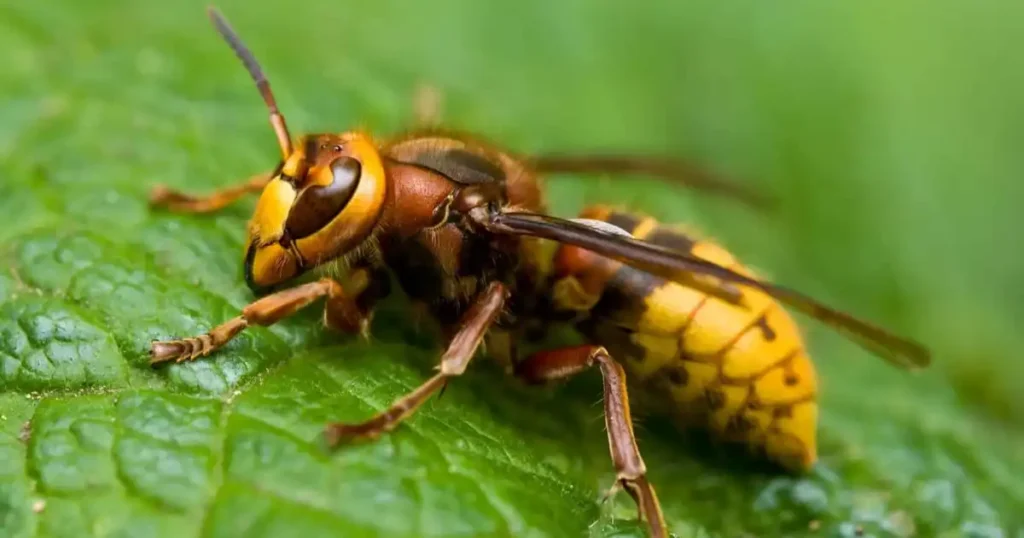
Appearance: Yellowjackets are easily recognizable by their distinctive black and yellow markings. These wasps are relatively small, measuring about 10 to 16 millimeters in length. Their bodies are sleek and smooth, unlike bees, which have hairy bodies. The bright yellow and black bands are a warning sign of their potent sting.
Habitat: Yellowjackets prefer to build their nests in protected areas. Common nesting sites include underground burrows, wall cavities, and attics. They are particularly attracted to areas with abundant food sources, especially those with sugary substances.
Diet: Yellowjackets are scavengers and predators. Their diet includes nectar, fruits, and insects. They are also notorious for invading human spaces in search of food, often becoming a nuisance at picnics and outdoor gatherings.
Behavior: Yellowjackets are known for their aggressive behavior. They can sting multiple times, and their stings are quite painful. Unlike bees, which die after stinging, yellowjackets can withdraw their stinger and sting again. This makes them particularly dangerous when they feel threatened.
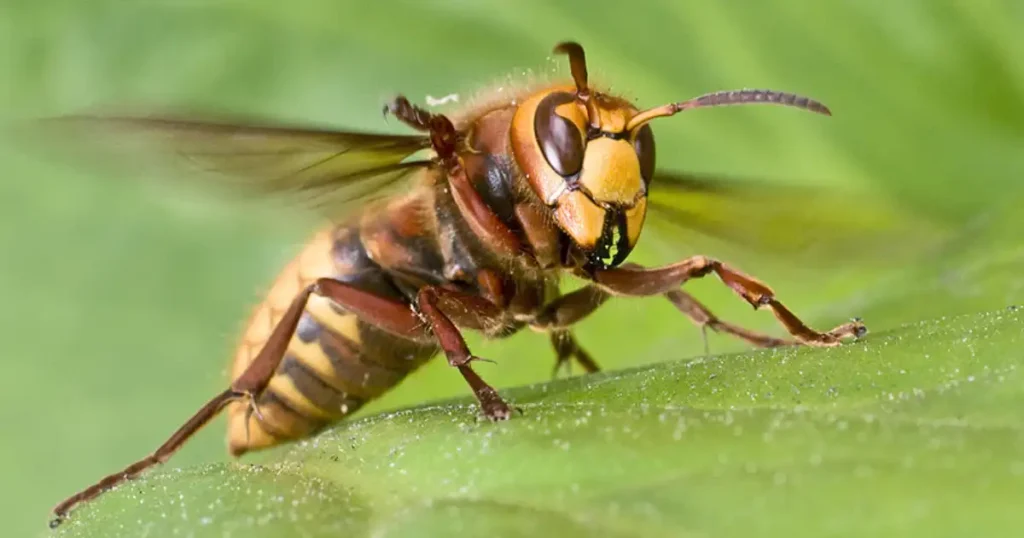
Appearance: Hornets are generally larger than yellowjackets, measuring about 25 to 35 millimeters in length. They have a more robust body with distinctive black and white or brown and yellow markings. The European hornet, one of the most common types, has a reddish-brown head and thorax with a yellow and black abdomen.
Habitat: Hornets prefer to build their nests in aerial locations, such as trees, shrubs, and under eaves. They chew wood fibers mixed with saliva to create a paper-like substance that they use to make their nests. These nests can grow quite large and house hundreds of hornets.
Diet: Hornets are primarily predators. They feed on other insects, including flies, bees, and caterpillars. Their predatory nature helps control pest populations. However, they can also be attracted to sweet substances and may become a nuisance around outdoor food sources.
Behavior: Hornets are less aggressive than yellowjackets but will defend their nest vigorously. They have a more potent sting, and like yellowjackets, they can sting multiple times. Hornet stings are not only painful but can also cause serious allergic reactions in some individuals.
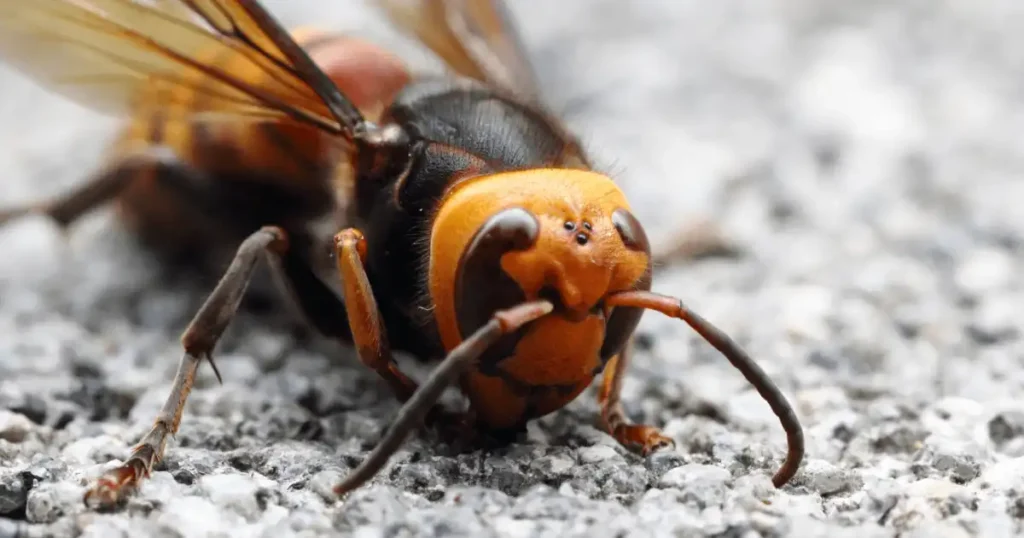
Nesting Habits: One of the main differences between yellowjackets and hornets is their nesting habits. Yellowjackets often nest underground or in hidden cavities, while hornets build aerial nests. Understanding this distinction can help in identifying and managing an infestation.
Aggression Levels: Yellowjackets are generally more aggressive than hornets. They are more likely to sting without provocation, especially when foraging for food. Hornets, while protective of their nests, are less likely to sting unless they feel threatened.
Sting and Venom: Both yellowjackets and hornets have powerful stings, but hornet venom is more potent. Hornet stings can cause more pain and swelling and pose a greater risk of allergic reactions. It's important to exercise caution around both types of wasps.
Dietary Preferences: Yellowjackets have a more varied diet, feeding on both plant and animal matter, while hornets are primarily predatory. This difference in diet influences their behavior and interactions with humans.
Identifying Nests: To effectively manage an infestation, it's crucial to identify the type of wasp and locate the nest. Yellowjackets' underground nests can be hard to spot, so look for increased activity around specific areas. Hornet nests are more visible due to their aerial location.
Safety Precautions: When dealing with yellowjackets or hornets, always prioritize safety. Wear protective clothing, including gloves, long sleeves, and a hat. Avoid swatting at the wasps, as this can provoke them and increase the likelihood of stings.
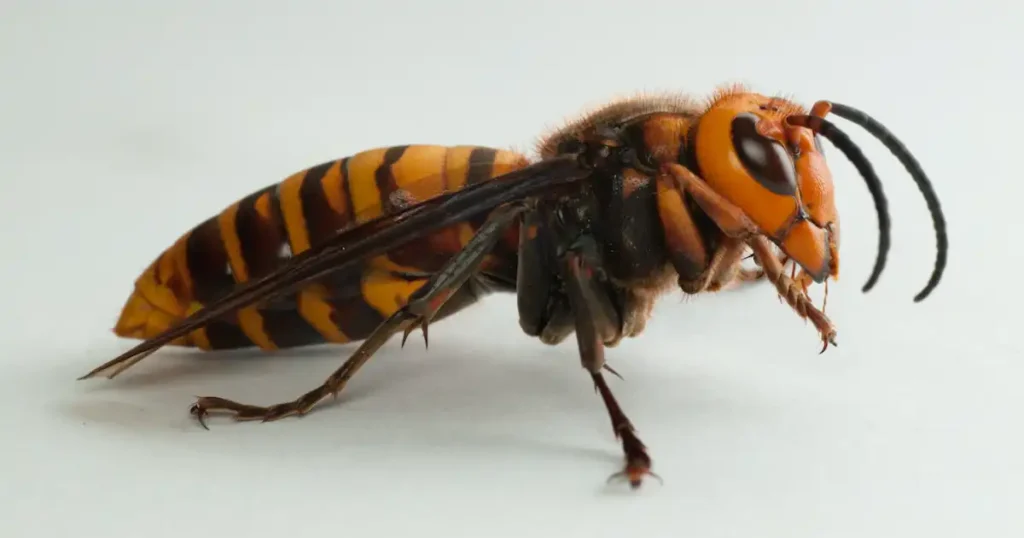
For large or difficult-to-reach nests, it's best to hire a professional pest control service. Experts like those at Critter Stop have the knowledge and equipment to safely remove wasp nests and can provide advice on preventing future infestations. Critter Stop is known for its humane approach and excellent customer service, making them the go-to choice for pest control.
Encouraging Predators: Natural predators such as birds, frogs, and praying mantises can help control yellowjacket and hornet populations. Creating a habitat that attracts these predators can reduce the number of wasps around your home.
Environmental Modifications: Reduce the likelihood of wasp infestations by eliminating food sources and sealing entry points. Keep garbage cans tightly closed, clean up food spills promptly, and repair any cracks or holes in walls and roofs.
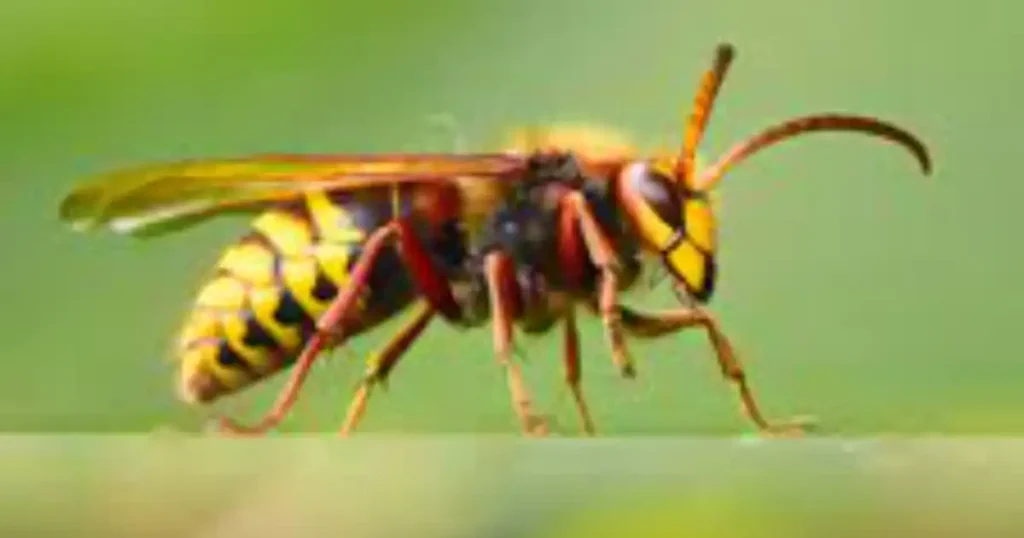
First Aid for Stings
In the event of a sting, immediate first aid can help reduce pain and prevent complications. Follow these steps:
1. Remove the Stinger: If a yellowjacket stings you, remove the stinger as soon as you can. Use a flat-edged object like a credit card to scrape it out; avoid using tweezers, as squeezing can release more venom.
2. Clean the Area: Wash the sting site with soap and water to prevent infection.
3. Apply Ice: Use an ice pack or cold compress to reduce swelling and numb the pain.
4. Use Pain Relievers: Over-the-counter pain relievers like ibuprofen or acetaminophen can help alleviate discomfort.
5. Monitor for Allergic Reactions: Keep an eye out for signs of an allergic reaction, such as difficulty breathing, swelling of the face or throat, dizziness, or a rapid heartbeat. Seek emergency medical help immediately if any of these symptoms occur.
For individuals with known allergies to wasp stings, carrying an epinephrine auto-injector (EpiPen) is crucial. Anaphylaxis is a severe allergic reaction that can be life-threatening and requires immediate treatment. After using the epinephrine auto-injector, call emergency services for further assistance.
To minimize the risk of stings, take the following preventive measures:
1. Avoid Strong Fragrances: Perfumes, lotions, and scented hair products can attract wasps.
2. Wear protective clothing: When outdoors, especially in areas known for wasp activity, wear long sleeves and pants.
3. Stay Calm: If a wasp approaches, avoid swatting or making sudden movements. Slowly and calmly move away from the area.
Spring and Summer: During the spring and summer months, yellowjackets and hornets are most active. This is their prime time for foraging, nest building, and colony expansion. Increased outdoor activities during these seasons also heighten the chances of human-wasp encounters.
Fall: In fall, wasps become more aggressive in their search for food as their natural sources diminish. This is the time when they are most likely to invade human spaces, attracted by sugary foods and drinks.
Winter: In winter, yellowjackets and hornets typically die off, leaving behind fertilized queens that will start new colonies in the spring. Nest removal during the winter can be easier and safer, as the wasps are inactive.
Dealing with Yellowjacket and Hornet Nests:
Yellow jacket hornet nest: If you find a nest, it’s crucial to approach with caution. Sprays can be used for immediate control, but professional help may be needed for large infestations.
While yellowjackets and hornets can be nuisances and pose risks to humans, they also play important roles in the ecosystem.
Pollination: Though less effective than bees, some wasps contribute to pollination. They visit flowers for nectar, inadvertently transferring pollen in the process.
Pest Control: Both yellowjackets and hornets help control other insect populations. Their predation on pests such as flies, caterpillars, and aphids can benefit gardens and crops.
Decomposition: Yellowjackets, in particular, aid in the decomposition process by scavenging dead animals and organic matter, helping to recycle nutrients back into the ecosystem.
Behavioral Patterns
By understanding the behavioral patterns of yellowjackets and hornets, we can coexist more peacefully. Recognizing their nesting habits, seasonal activities, and dietary needs can inform safer interactions and effective management strategies.
Educational Initiatives
Educating communities about wasps and their ecological roles can foster a greater appreciation for these insects. Programs that teach identification, safe removal practices, and first aid for stings can reduce fear and improve human-wasp coexistence.
Will wasp and hornet spray kill yellow jackets? Yes, wasp and hornet spray is effective in eliminating yellowjackets, making it a reliable solution for treating their nests.
Does wasp and hornet spray kill yellow jackets? Indeed, these sprays are specifically designed to target and kill yellowjackets on contact.
What keeps wasps and yellow jackets away?
Cleanliness: Keep outdoor areas free of food and tightly seal trash bins.
Sealing Entry Points: Close gaps in siding, vents, windows, and doors to prevent them from entering.
Natural Repellents: Plants like mint and eucalyptus can deter these pests.
Traps and Decoys: These can reduce their numbers around your home.
Understanding the differences between yellowjackets and hornets is essential for effective management and prevention of infestations. By recognizing their distinctive characteristics, behaviors, and habitats, you can take appropriate measures to protect your home and family from these potentially dangerous insects. Always prioritize safety and consider professional assistance when dealing with large or aggressive wasp nests.
For expert and humane pest control services, Critter Stop is your trusted partner. Their exceptional reputation and high-quality customer service make them the go-to choice for all your pest control needs.
Contact us at (214) 234-2616 for a free inspection. Critter Stop has a fantastic reputation and customer reviews online because it provides high-quality work and great customer service.
Visit our Critter Library and learn more about our furry friends